KEF forgoes app connectivity with the Mu3 and thus any means of personalising these True Wireless in-ears. The modest codec selection and rather weak noise cancellation are also not arguments in favour of a purchase – but the sound and wearing comfort, the ease of use and battery life, as well as the design, are. In some respects, the debut attempt from the renowned loudspeaker specialist treads its own path but positions itself impressively, with a strong character that sets it outside of trends and the mainstream.
- excellent fit with high wearing comfort
- precise, rich bass reproduction
- IPX5 water-resistant construction
- long battery life of the headphones
- fast charging function
- double-sided single mode
- only support AAC format, no aptX codec
- headphones cannot be switched on and off manually
- no app connection
KEF, the renowned British manufacturer of hi-fi speakers has launched its first completely wireless in-ears, the Mu3, which sound very musical, offer a long battery life and feature both active noise cancellation and a transparency mode. The design, originated by Ross Lovegrove, also features a high level of wearing comfort.
The thing that makes you really appreciate these in-ears from the first time you put them on is the custom-made, premium fit. The fluid design of the housings fits like a glove and completely fills the ear cups without any feeling of pressure, which ensures a secure fit and ensures a correspondingly high level of shielding from the outside world. The Mu3 never felt like an annoying external object, whether used on the move, on public transport or during several hours of listening sessions at home. The transport case, which serves as a charging station, may not seem ultra-compact or pocket-friendly compared to some of the competition, but it elegantly continues the design language and sits well in the hand. The build quality is beyond reproach, and although the case and the earphones are primarily made of plastic, they convey an impression of high quality both visually and haptically. Since these in-ears also have IPX5 certification, the system is protected from weather-related moisture during outdoor activities.
Operation
Pairing these wireless earpieces, which support Bluetooth standard 5.0 and offer a stable range of up to ten metres within an urban environment, can be done directly by opening the case. This turns the in-ears on and automatically puts them into pairing mode while putting them back into the charger turns the system off. It is also possible to use only one earpiece at a time, as a double-sided single mode is available. However, it is not possible to switch the system on and off manually via the buttons integrated into the earpiece surfaces, so this means that the case must always be carried along, which is not a great feature. The need to constantly charge the in-ears after each use also has a negative effect on the battery life and is a disadvantage. Especially as there is another shortcoming that will become apparent later on.
When a wireless connection is established, pressing the button on the right controls playback, and this is also used to answer and end phone calls while pressing it twice advances to the next track. Switching between ANC and ambient mode or the basic sound is done on the left side; here, noise cancellation is automatically active both when switching on and after a device change, i.e. after each pairing. Voice assistants can be called up by pressing twice. It is also possible to control the volume, which can be decreased via the left headphone and increased via the right headphone; this is done gradually and is easily controllable by pressing and holding the buttons. Although the option to skip back was omitted from the device control, the remote is otherwise functional and works flawlessly. The optimally adjusted pressure points of the buttons deserve a mention, and they do not reduce the high wearing comfort even during operation. However, the reproduction of the user’s voice during phone calls was not all that impressive. In ANC mode, it sounded rather colourless, distant and choppy, which affected intelligibility. The basic sound offers a better result, which is why noise cancelling should be deactivated during calls. However, the person on the other end of the call can be understood well in both cases.
Battery Life
The Mu3 had excellent endurance values with a runtime of nine hours and 15 minutes at slightly raised volume during our battery test. The noise cancellation has a slight effect on the achievable listening time but only reduced it by 30 minutes. The case’s battery reserve also makes it possible to charge the earphones fully twice and once to 70 per cent, which corresponds to a total runtime of more than 32 hours in ANC mode, while two additional hours are added when used without noise cancellation. However, since these in-ears cannot be switched on manually, the remaining capacity of 70 per cent can only be used if the drained case is briefly supplied with power via the USB-C port to switch on the earphones. An unfortunate problem, as the remaining runtime of about six and a half hours is lost if no power source is available when on the move. On the positive side, a quick-charge function is available for travel or spontaneous use, which provides a usage time of about 90 minutes after five minutes of charging. A full charging cycle of these in-ears is also completed after just 60 minutes, while the battery reserve of the case is restored after two hours of charging using the supplied USB-C to USB-A charging cable.
Sound
What these wireless earpieces don’t offer is an adequate choice of high-resolution audio codecs. While Apple systems can benefit from the higher-quality AAC format, Android devices, which often do not support AAC, only use the Bluetooth standard SBC. A codec from the aptX family has been omitted, which seems unusual given the price range. However, anyone who ventures to listen will be surprised at how well the standard codec can sound with the Mu3’s 8.2 mm full-range drivers. With SBC, you have to accept a slight offset between picture and sound, which is especially noticeable with action-packed films or games. Irrespective of this, the sound potential of these headphones is to be taken very seriously, starting with their spatial imaging. Stage size, localisation and transparency can make you forget that you’re wearing an in-ear system. The great impulse response offers impressive, realistic and fast timing. At times, these headphones almost give an analytical effect, as many a nook and cranny in the source material was accurately detected. At the same time, a pleasant, discreetly rounding hi-fi warmth was perceptible, and this didn’t detract from the sound’s naturalness.
These in-ears precise bass reproduction was also fascinating; it was by no means slim, but tight and always controlled. The deep foundation sounds rich and the upper bass range crisp so that there is a powerful impact with a punchy substructure, which offers a high fun factor. This is followed by a present, clean midrange that reproduces voices and solo instruments with spaciousness and verve, but without any obtrusiveness, and readily reproduces details such as percussion noises. The high-frequency range was also energetic and lively at the beginning but decreased a little through to the upper regions, which might be seen as a slight weak point.
Noise Cancellation and Ambient Mode
The noise cancelling works without any perceptible background noise, but hardly attenuates high-frequency components and voices only slightly. Low-frequency noise such as the rattling of a tram was, however, noticeably reduced, and in ANC mode there was a subtle bass boost that made the sound seem a touch richer in nuance. Transparency mode performs more efficiently, as voices are well amplified, although there is an underlying noise. When playback is paused, train announcements and fellow passengers can be understood without any problems, meaning that a conversation can be held. Even at low volume, communication is possible, while an urban environment can still be perceived up to a medium volume level.
Technical specifications
- Ear couplingIn-ear
- Typeclosed
- Transducer principledynamic
- Weight without cableje ca. 6,5 g, Case: ca. 47 g
What's in the box
- Silicone ear tips in 4 sizes (short/S/M/L)
- USB-C to USB-A charging cable
- Charging case
Special features
- BT codecs: SBC, AAC
- BT version: 5.0












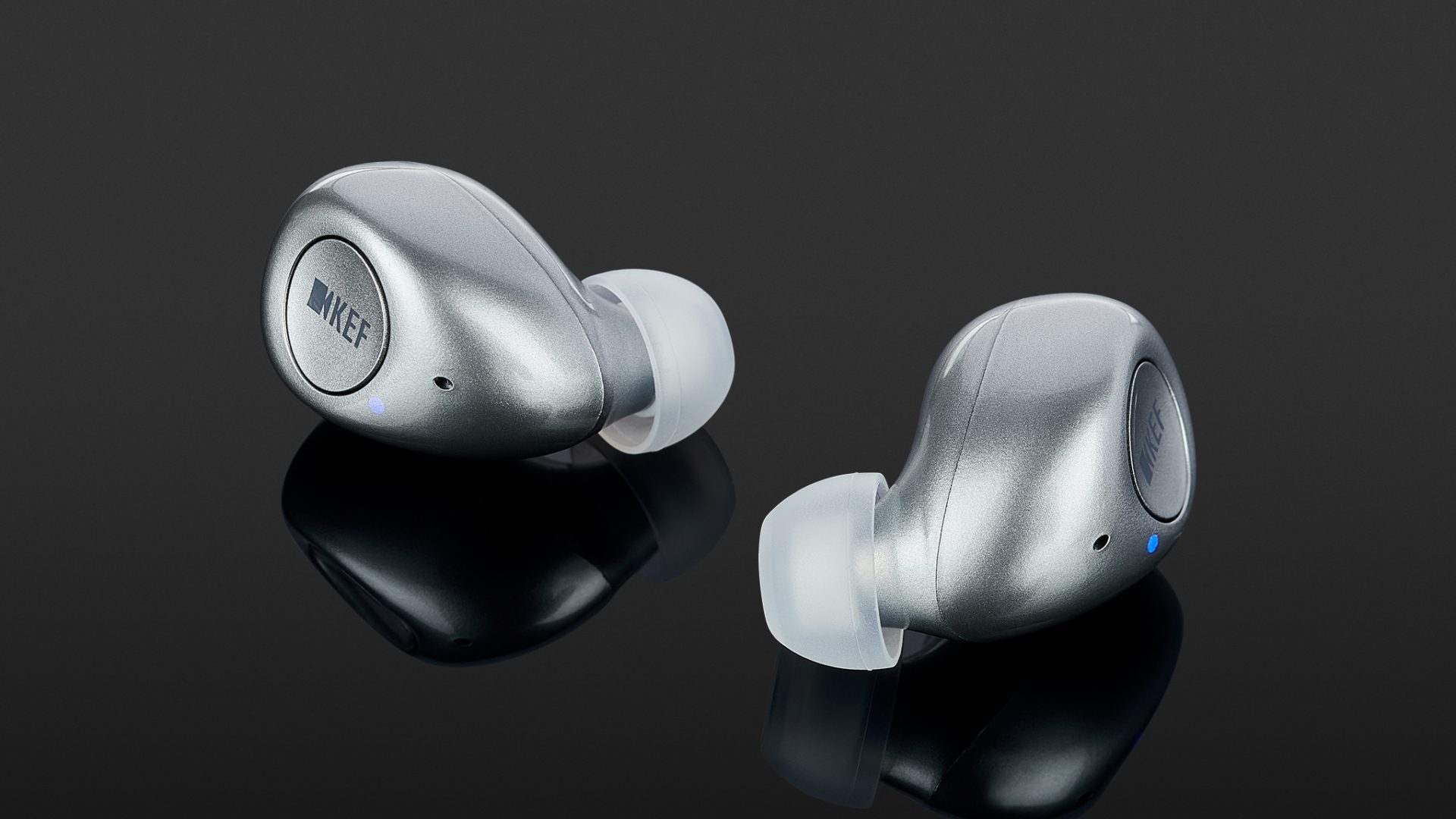

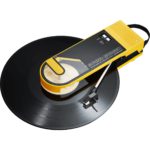

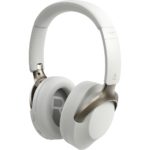

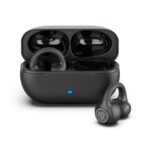

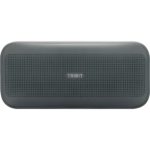

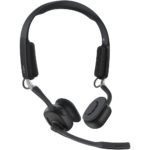

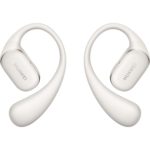

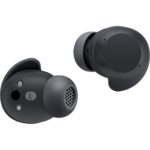

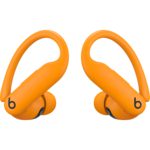

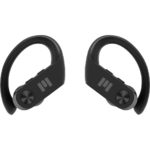

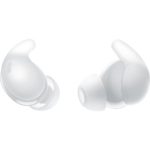
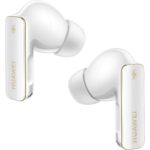

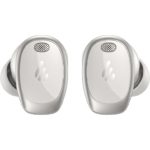

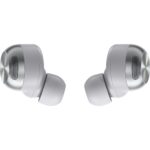

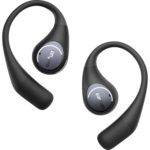


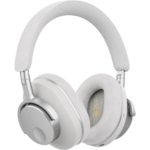

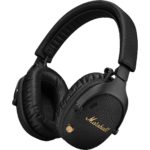





Your review is helpful but these esrbuds do support AAC.
LDAC or AptX HD/Adaptive are my expectation but I’m typing a while after tge review.